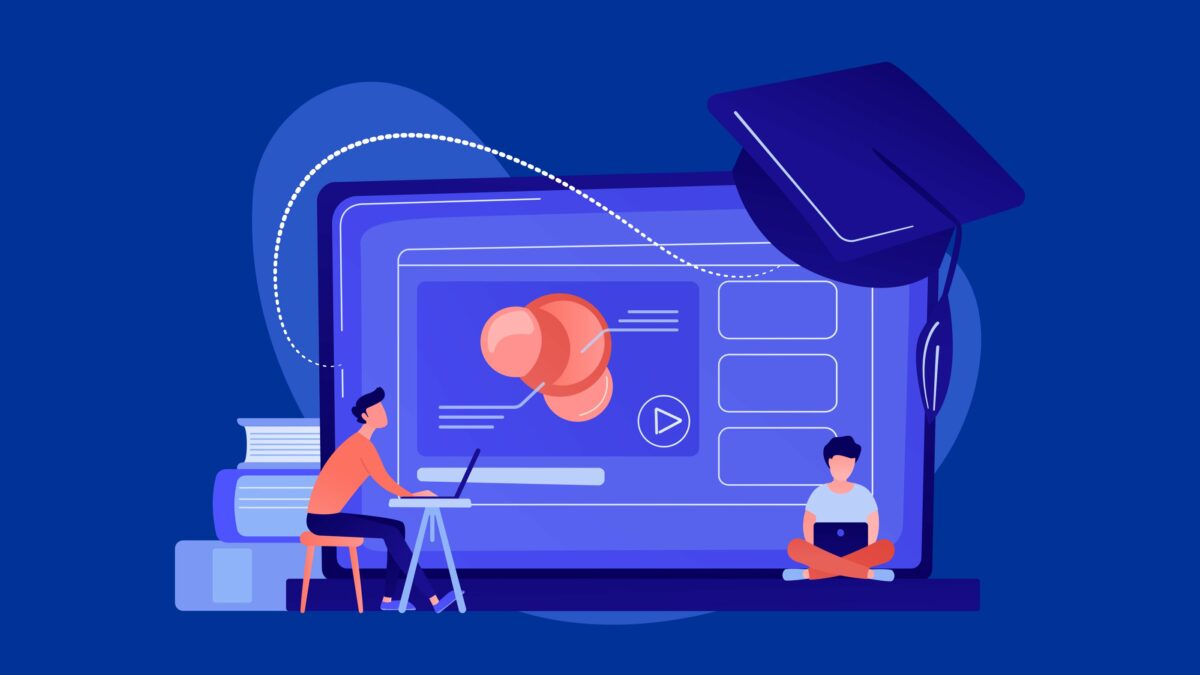Let’s face it, the tech industry is evolving rapidly. Developers are expected to understand the latest developments with new languages, frameworks, and methods. For beginners, this journey can be challenging but necessary for their career growth.
Employing continuous learning strategies is essential for developers. This allows them to improve their knowledge and skills while remaining competitive in the job market. Many opportunities are available online and offline, and we will discuss this in no time!
If you are a beginner developer, we have listed five ways to stay updated in the tech industry. But before we dive into the details, let’s understand more in-depth why continuous learning is important for beginner developers.
Benefits of Continuous Learning for Beginner Developers
Continuous learning has become a necessity as the tech industry rapidly developed. Ongoing education and development can help you improve technical skills and foster personal growth as a beginner developer. Here are more benefits you can get.
- Improve programming skills and problem-solving abilities
- Foster adaptability and familiarity with various new technology
- Connect with other professionals and experienced developers
- Enhance career prospects in the job market
As continuous learning is essential for beginner developers, we’ve listed some strategies to keep you updated on the recent developments in the industry.
Staying On Track With Industry Trends
There are many ways to stay updated on the newest trends. One of the easiest ways is following industry blogs and publications. Consider following and subscribing to reputable tech blogs, such as TechCrunch, Wired, or Medium’s programming section.
These platforms often provide insights into emerging technologies, best practices, and industry news. Other ways to stay abreast of industry trends are watching YouTube book review videos, attending conferences, and engaging in online communities.
Participating in tech conferences allows you to network with industry professionals. Meanwhile, online communities like Stack Overflow and Reddit give you opportunities to learn from others, ask questions, and discuss industry trends.
Participating in Online Courses
Online courses are a great and quick way to learn new skills and technologies. You can find online courses with flexible hours and affordable prices that offer skill improvement programs and other courses with experienced developers.
Here are some tips to consider. First, choose reputable platforms. Coursera, Udemy, and Pluralsight usually offer a wide range of courses taught by industry experts. You can also take online classes provided by experts.
As a beginner, you can start with courses that cover fundamental programming concepts, languages (e.g., Python, JavaScript), and development frameworks (e.g., React, Django). Developing a strong foundation is essential for long-term success.
Once you have a solid understanding of the basics, explore specialized topics based on your interests or career goals. This could include machine learning, web development, mobile app development, or cloud computing.
Engaging in Coding Challenges
Coding challenges are excellent for beginner developers to practice problem-solving skills and improve coding abilities. You can go to websites such as LeetCode, HackerRank, and CodeSignal to try a variety of coding challenges categorized by difficulty level and topic.
While joining challenges offers a fun experience, you also need dedicated practice time. Schedule regular practice sessions dedicated to solving coding challenges. Consistency is key to improving your knowledge, skills, and portfolio over time.
After attempting a coding challenge, review the explanations for the solutions provided by others on the platform. Pay attention to different approaches and techniques used. Also, get feedback from peers or mentors to identify areas for improvement.
Contributing to Open-Source Projects
Contributing to open-source projects gives you many opportunities. You can learn real cases, collaborate with other developers, and even practice programming for free. These can enrich your portfolio and attract recruiters.
However, many beginner developers don’t know where to join this project. You can begin by exploring popular open-source repositories on platforms like GitHub. Look for projects that align with your interests and skill level.
Many projects label issues as “beginner-friendly” or “good first issue” to help newcomers get started. You can always start with small contributions like fixing typos or adding tests. But never feel intimidated by the complexity of larger projects.
Projects help you familiarize yourself with the project’s codebase and contribution process. Keep the consistency to improve your skills, build your portfolio, and establish your presence within the open-source community.
Networking and Mentorship
Networking and mentorship will help you with professional development. Building meaningful connections with peers and industry professionals opens doors to new opportunities in the future.
The easiest way to do this is to leverage online platforms, especially LinkedIn. Connect with fellow developers or join developer groups to engage in discussions. You can always share your expertise and experiences to attract recruiters.
If you don’t mind spending some budget, try seeking online mentorship. Find experts who can provide guidance, support, and career advice. Mentorship also helps accelerate your learning, expand your professional network, and navigate the challenges and new trends in tech.
Takeaway
Continuous learning is key for beginner developers who aim to make their mark in the tech world. The more effort you make as a developer will guide you to better career opportunities.
Those continuous learning strategies outlined above lay the groundwork for success. You don’t have to try them all. Focus on strategies that can benefit you the most as a beginner developer.
Also, maintain consistency when building your portfolio. Projects, challenges, and online courses are excellent aspects that help your portfolio stand out among competitors.
